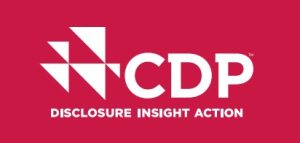Institutional Investor Carbon Indicator Report
State Street has released a report on institutional investor carbon indicators, analyzing the carbon emissions data of $36.7 trillion assets under its custody, providing investors, policymakers, and the public with carbon indicators for their investment portfolios, and analyzing the current carbon risk situation of assets.
Whether institutional investors include carbon emissions in their portfolio management or not, they cannot avoid the existence of carbon risks. Carbon risk may come from regulatory policies (such as government carbon taxes) or from investment preferences (the focus of ESG funds and sustainability funds). These carbon risks may have an impact on asset prices and ultimately bring risks to investment portfolios.
Carbon Indicators and Its Factors
State Street divides carbon indicators into two directions, namely carbon emissions and carbon emission intensity. Carbon emissions refer to the emissions of companies in the investment portfolio, while carbon intensity refers to the ratio of emissions to income. In the process of constructing carbon indicators, State Street proposed the following impacting factors:
Flow effects, which refer to the buying and selling of a company in an investment portfolio can affect carbon indicators. For example, buying a high emission company and selling a low emission company will increase carbon exposure;
Company effects, which refer to changes in operating conditions of a company can affect the carbon emissions, thereby affecting the carbon indicators of the investment portfolio. For example, if a company adopts new technologies to reduce carbon emissions, it will lower the overall carbon target;
Price effects, meaning that changes in the stock price can affect the weight in the investment portfolio, thereby altering the overall carbon index of the portfolio. For example, if the stock price of a high emission company rises, its proportion in the portfolio will increase, and the overall carbon index of the portfolio will also increase;

Changes in Carbon Indicators during Last Year
State Street found that in the past year, the carbon emissions and intensity of the investment portfolio have shown opposite changes. From the perspective of carbon emissions, the portfolio exposure to emissions has increased from 3.9 million tons to 4.2 million tons. From the analysis of carbon emission intensity, its exposure decreased from 152 tons per million US dollars to 137 tons per million US dollars.
The trend of increasing carbon emissions and decreasing carbon emission intensity can be explained by the above impacting factors. In the past year, energy stocks and public utility stocks in the market have performed well, with their stock prices rising significantly and their proportion in the investment portfolio continuously increasing. These types of listed companies have relatively higher carbon emissions, so the overall carbon emissions of their investment portfolio also increase.
For carbon emission intensity, due to the use of low-carbon energy and the application of regulatory policies, the overall carbon emissions of the company in its business activities have decreased, and the carbon emission intensity of the investment portfolio has also decreased accordingly. Therefore, the increase in carbon emissions is significantly related to price effects, while the decrease in emission intensity is significantly related to company effects.
Investment Outcome of Decarbonization Strategy
Although energy stocks performed well last year, decarbonization strategies also outperformed the market. This is because decarbonization strategies maintain neutral industry weights and tend to allocate companies with lower carbon emission intensity. The decarbonization strategy investment portfolio is more carbon efficient and can also generate profits by allocating companies with higher energy efficiency in rising energy prices.
State Street has found that most decarbonization strategies have shown positive returns over the past year, and as carbon emissions gradually become a focus for large institutional investors (pension funds, sovereign wealth funds, etc.), these strategies may play a more essential role.
Reference:





